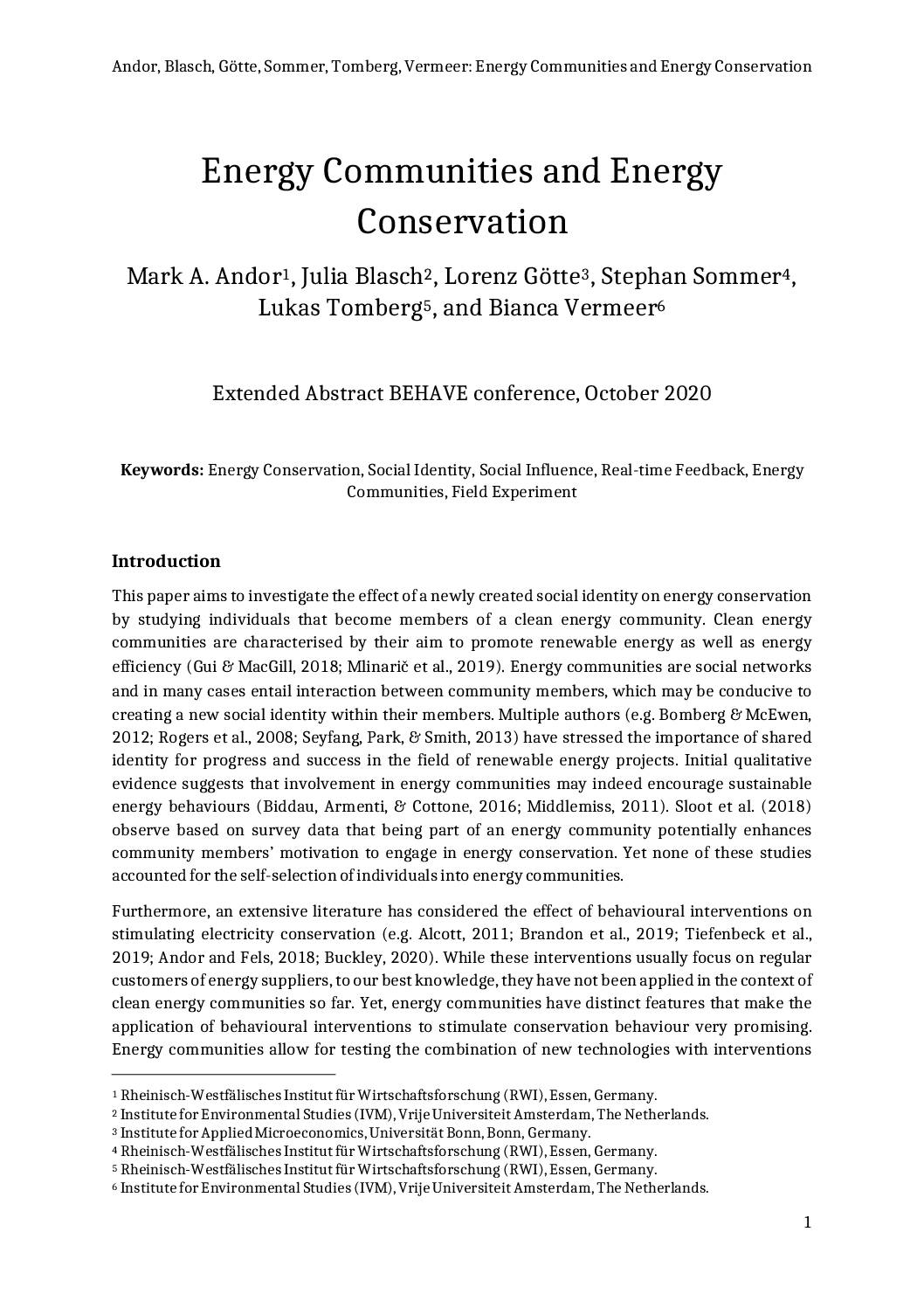This paper aims to investigate the effect of a newly created social identity on energy conservation by studying individuals that become members of a clean energy community. Clean energy communities are characterized by their aim to promote renewable energy as well as energy efficiency. Energy communities are social networks and in many cases entail interaction between community members, which may be conducive to creating a new social identity within their members. Multiple authors have stressed the importance of shared identity for progress and success in the field of renewable energy projects. Initial qualitative evidence suggests that involvement in energy communities may indeed encourage sustainable energy behaviours. Based on survey data, being part of an energy community potentially enhances community members’ motivation to engage in energy conservation. Yet none of these studies accounted for the self-selection of individuals into energy communities.
Furthermore, an extensive literature has considered the effect of behavioural interventions on stimulating electricity conservation. While these interventions usually focus on regular customers of energy suppliers, to our best knowledge, they have not been applied in the context of clean energy communities so far. Yet, energy communities have distinct features that make the application of behavioural interventions to stimulate conservation behaviour very promising. Energy communities allow for testing the combination of new technologies with interventions that harness the potential of the new social network. An example of such technology is a smart shower meter that provides real-time feedback during showering, which is used in the current study.
This paper aims to investigate to what extent the membership in an energy community induces electricity conservation and enhances the effect of real-time feedback on water and electricity consumption. It is the first study to explore this relationship in a field experiment, in which random assignment of participants to treatment groups allows for estimation of causal effects.The results are important for the effective design and support of energy communities and behavioural interventions to induce household electricity conservation.
Download sourceShare this

Sectors: Power sector, Renewables
Country / Region: Global
Tags: clean energies, cleaning, electricity generation, energy, energy efficiency, energy savings, projects, random utility model, renewable energies, water resourcesIn 1 user collection: Session 6a: Energy Communities and Related Behaviour Strategies to Energy Efficiency
Knowledge Object: Publication / Report
Publishing year: 2020
Author: Mark A. Andor, Julia Blasch, Lorenz Götte, Stephan Sommer, Lukas Tomberg, and Bianca Vermeer
Content:

